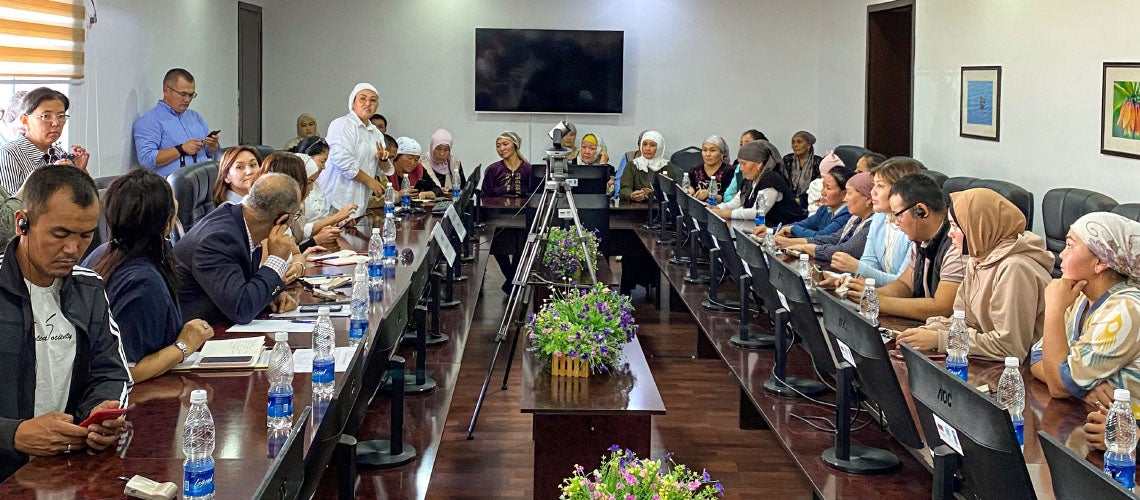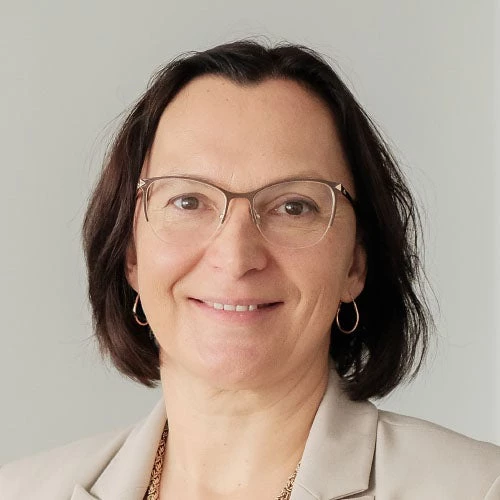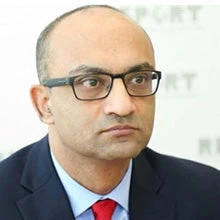 Country Partnership Framework consultation meeting
Country Partnership Framework consultation meeting
As we emerge from a series of consultations held this summer and fall with the authorities, civil society, women and youth groups, local communities, and entrepreneurs across the Kyrgyz Republic, we realize that there is one issue that unites these different groups and runs through various development areas: safe drinking water.
This came up in every conversation we had — be it on the COVID-19 response, human capital, tourism potential, development of micro, small and medium enterprises (MSMEs), or gender equality — as part of the meticulous process of defining top priorities that the World Bank will help the Cabinet of Ministers of the Kyrgyz Republic tackle over the course of the next Country Partnership Framework (CPF) for 2024-2028.

In one such visit, we met 11-year-old Mehnisa, whose father invited us to visit their house to show off availability of running water, a new indoor toilet and a boiler, thanks to which they now have hot water in their bathroom and kitchen. Mehnisa’s family is among the beneficiaries of the $59.5 million World Bank-funded Sustainable Rural Water Supply and Sanitation Development Project and later Additional Financing that is helping improve access to and quality of water supply and sanitation services in the participating rural communities.

It was gratifying to hear about the impact that the project had on this family’s life. Mehnisa shared that she no longer needs to carry water from the pump every day – a trip of several hundred meters each way. That is time and energy that an 11-year-old can use for studying and socializing. And Mehnisa’s father was proud of the positive changes on the family’s quality of life, expressing his readiness to pay the water bill according to an individual water meter.
In all the project communities, the Sustainable Rural Water Supply and Sanitation Development Project is having positive social and economic impacts including improved water accessibility, hygiene and sanitation standards, nutrition, and behavioral habits. Waterborne illnesses are diminishing while the overall health of the population, specifically children under five years old, is improving. The project is also funding awareness-raising campaigns and greater involvement of civil society that are advancing the shift to modern practices in sanitation and hygiene.
A Call to Action on Water Access
With Mehnisa’s story in mind, how much more investment is needed to connect every rural household in the Kyrgyz Republic to safe drinking water? The answer is around $400 million. That is how much it will cost to construct new water supply systems in 230 villages with no access to water today and to finance rehabilitation needs for critical water infrastructure in 436 villages across the country.
In marking World Toilet Day on November 19, we want to reaffirm the World Bank’s support to the Kyrgyz Republic in raising living standards of its citizens: improving people’s access to safe water, sanitation, and hygiene will be front and center of the new CPF.
We also want to use the occasion of World Toilet Day to call for joint action. The World Bank is well aligned with other development partners in many areas including education, health, connectivity, MSMEs, energy efficiency, and more. We look forward to joining forces with partners interested in expanding their engagement in rural water supply and sanitation. The World Bank is considering convening a Kyrgyz Republic Water Forum in 2023. We hope that with commitment on behalf of the authorities and strategic, broad-based support from stakeholders the Kyrgyz Republic will leave no one behind on the Sustainable Development Goal #6 – clean water and sanitation.




Join the Conversation